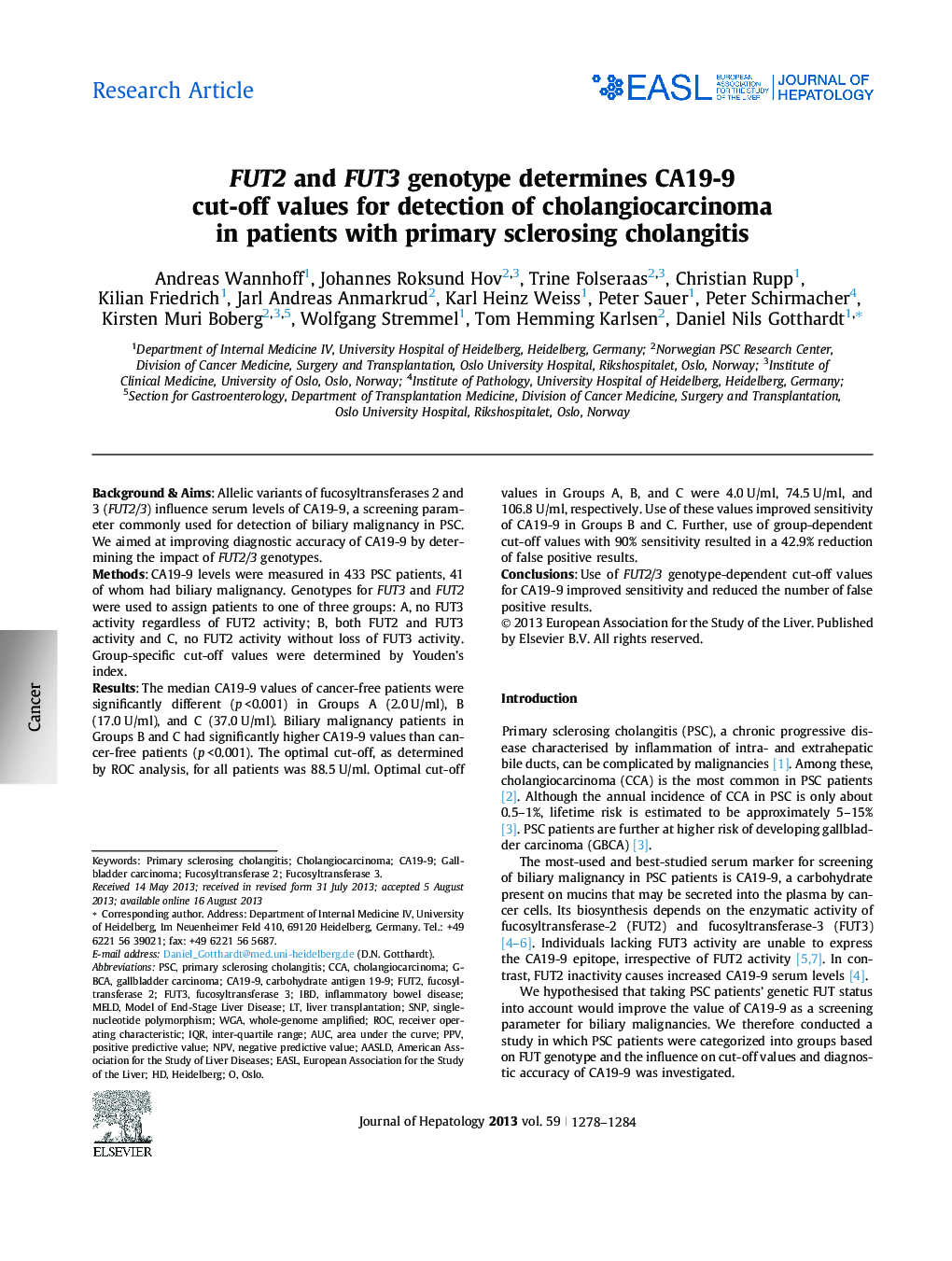| Article ID | Journal | Published Year | Pages | File Type |
|---|---|---|---|---|
| 6104000 | Journal of Hepatology | 2013 | 7 Pages |
Background & AimsAllelic variants of fucosyltransferases 2 and 3 (FUT2/3) influence serum levels of CA19-9, a screening parameter commonly used for detection of biliary malignancy in PSC. We aimed at improving diagnostic accuracy of CA19-9 by determining the impact of FUT2/3 genotypes.MethodsCA19-9 levels were measured in 433 PSC patients, 41 of whom had biliary malignancy. Genotypes for FUT3 and FUT2 were used to assign patients to one of three groups: A, no FUT3 activity regardless of FUT2 activity; B, both FUT2 and FUT3 activity and C, no FUT2 activity without loss of FUT3 activity. Group-specific cut-off values were determined by Youden's index.ResultsThe median CA19-9 values of cancer-free patients were significantly different (p <0.001) in Groups A (2.0 U/ml), B (17.0 U/ml), and C (37.0 U/ml). Biliary malignancy patients in Groups B and C had significantly higher CA19-9 values than cancer-free patients (p <0.001). The optimal cut-off, as determined by ROC analysis, for all patients was 88.5 U/ml. Optimal cut-off values in Groups A, B, and C were 4.0 U/ml, 74.5 U/ml, and 106.8 U/ml, respectively. Use of these values improved sensitivity of CA19-9 in Groups B and C. Further, use of group-dependent cut-off values with 90% sensitivity resulted in a 42.9% reduction of false positive results.ConclusionsUse of FUT2/3 genotype-dependent cut-off values for CA19-9 improved sensitivity and reduced the number of false positive results.
